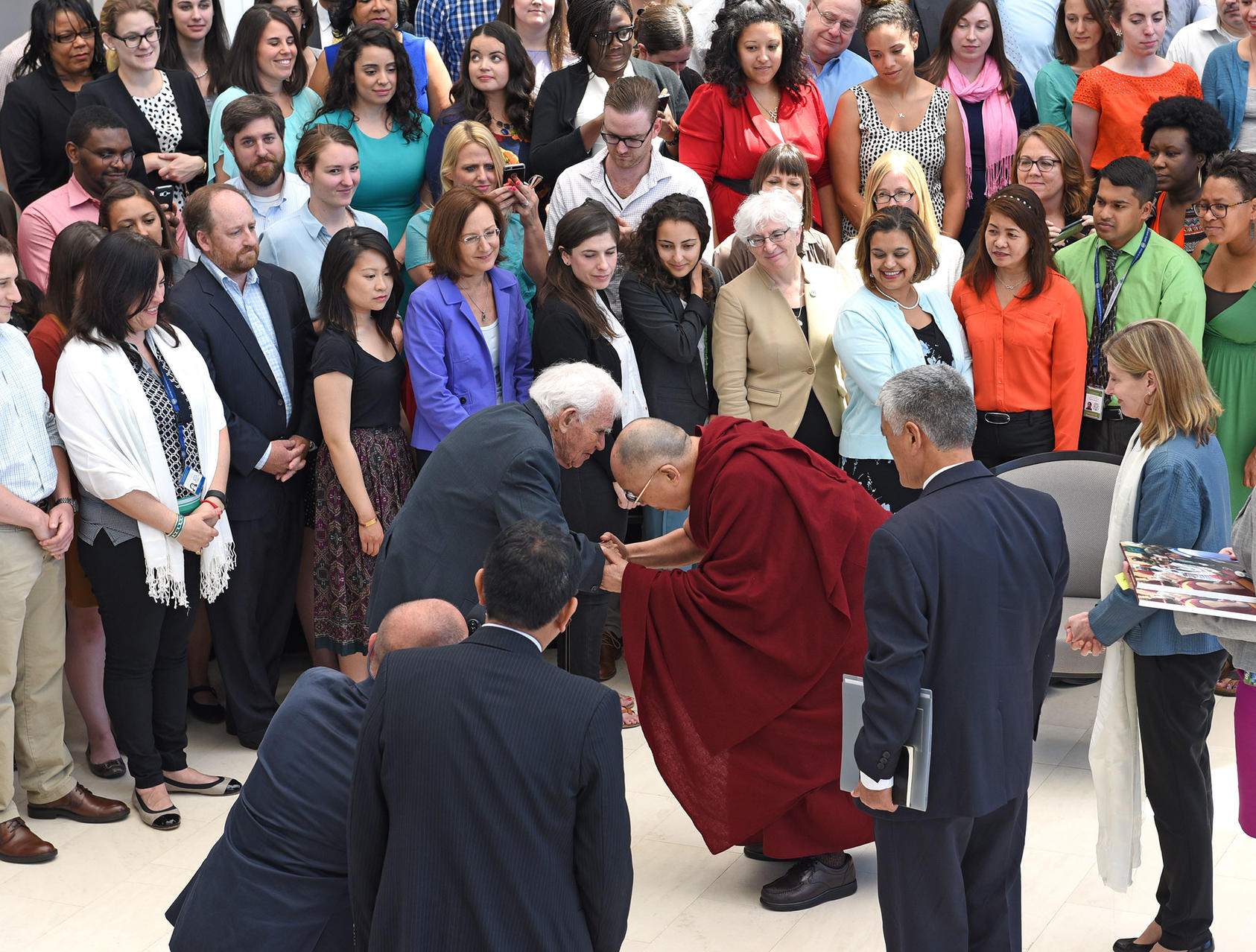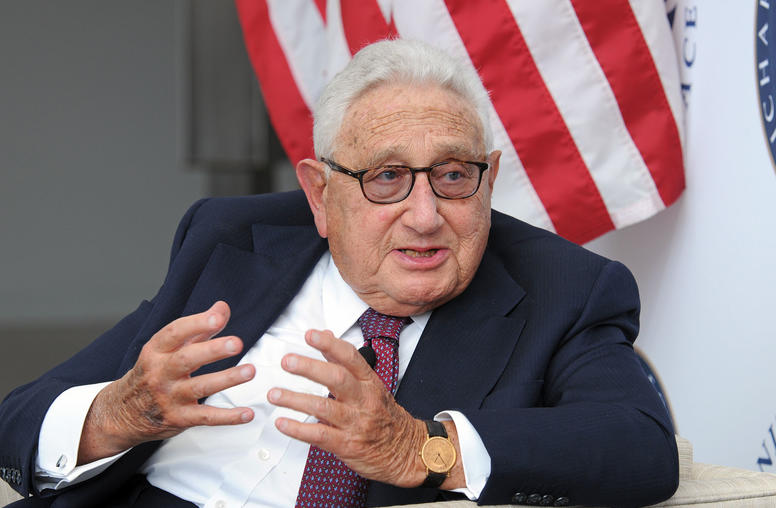In Memoriam: Landrum Bolling
The U.S. Institute of Peace mourns the loss of Landrum Bolling, an educator, journalist, philanthropist, author and activist for Middle East peace. Bolling, who died on January 17 at age 104, served on the Institute’s International Advisory Council. “Landrum Bolling was a peace legend,” said USIP President Nancy Lindborg.
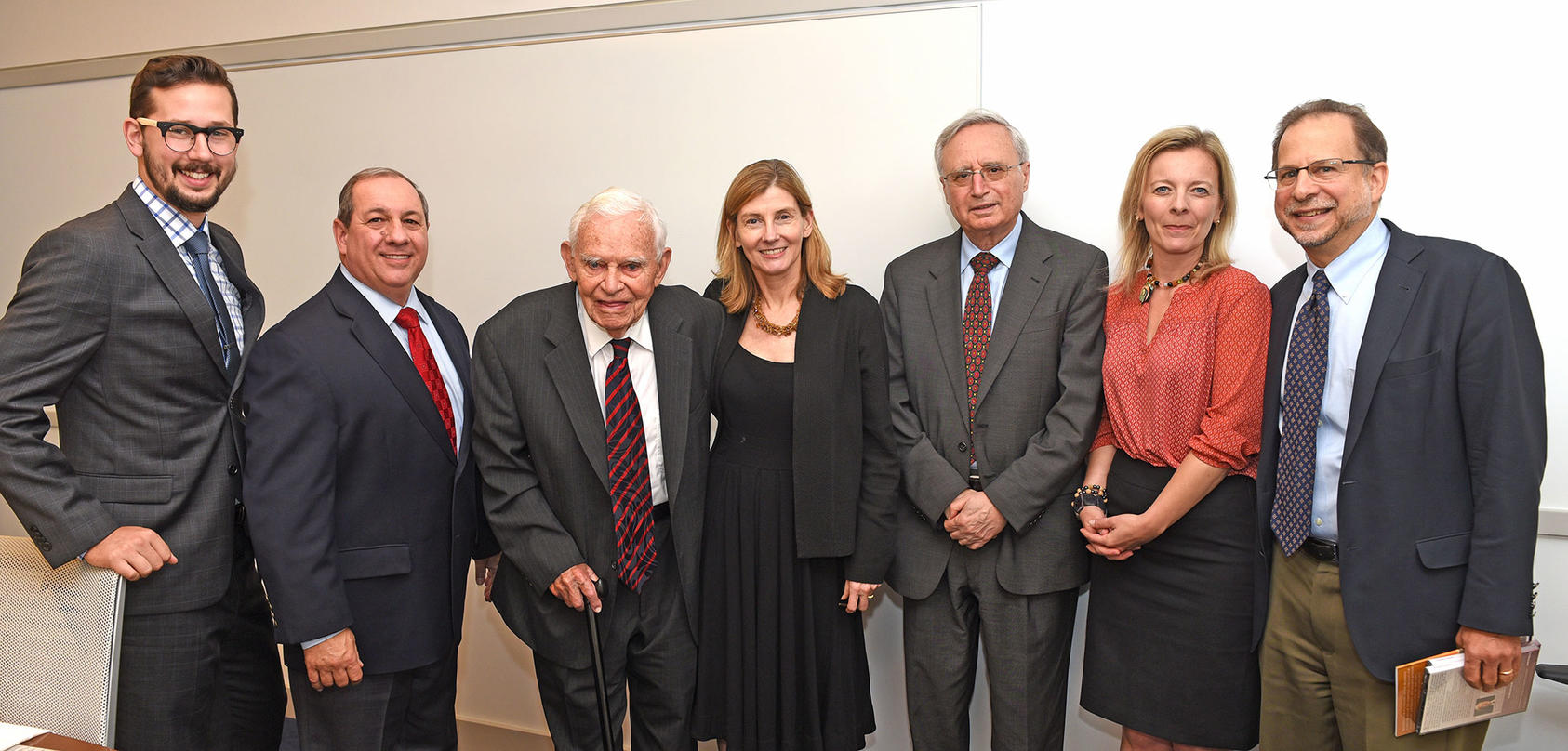
Bolling worked across nine decades to bridge divides among ethnic, religious and national groups, and to resolve conflicts in ways that averted the use of violence. The road to peace, Bolling argued, could only begin with listening to, and trying to understand, an adversary’s story.
“Landrum fully inhabited a life that stretched a century and encompassed a multitude of events, careers, geographies and political upheavals,” said Lindborg, who worked with Bolling at Mercy Corps, the international humanitarian organization where he served as director-at-large and, more recently, senior adviser.
Lindborg recalled meeting Bolling when he joined Mercy Corps—at age 82—to run reconciliation programs in the shattered city of Sarajevo toward the end of the Bosnian war. “He was indefatigable and filled with ideas and curiosity,” she said. “He was truly a big soul and had a light that inspired all of us to try harder and do more to build peace in this unruly world.”
Middle East Peacemaker
Bolling was perhaps best known for his decades of work to find a settlement of the Israeli-Palestinian conflict. He was an informal advisor to several presidents, helping to improve communications between the United States and Palestinians.
During the administration of President Jimmy Carter, Bolling served as a self-described “messenger boy,” shuttling between the White House and the Palestine Liberation Organization and its leader, Yasser Arafat. Bolling also built close relations with Israeli leaders, and throughout his career kept up communications with leaders from all sides across the Middle East.
Bolling’s 1970 book, Search for Peace in the Middle East, helped open the way to consideration of a two-state solution, the idea that later became, for decades, the framework for all efforts to achieve an Israeli-Palestinian peace. Nearly a half-century later, in 2014, he took up the same conflict in his last book: Ending the Israeli-Palestinian Conflict: Arab-Jewish Partnerships.
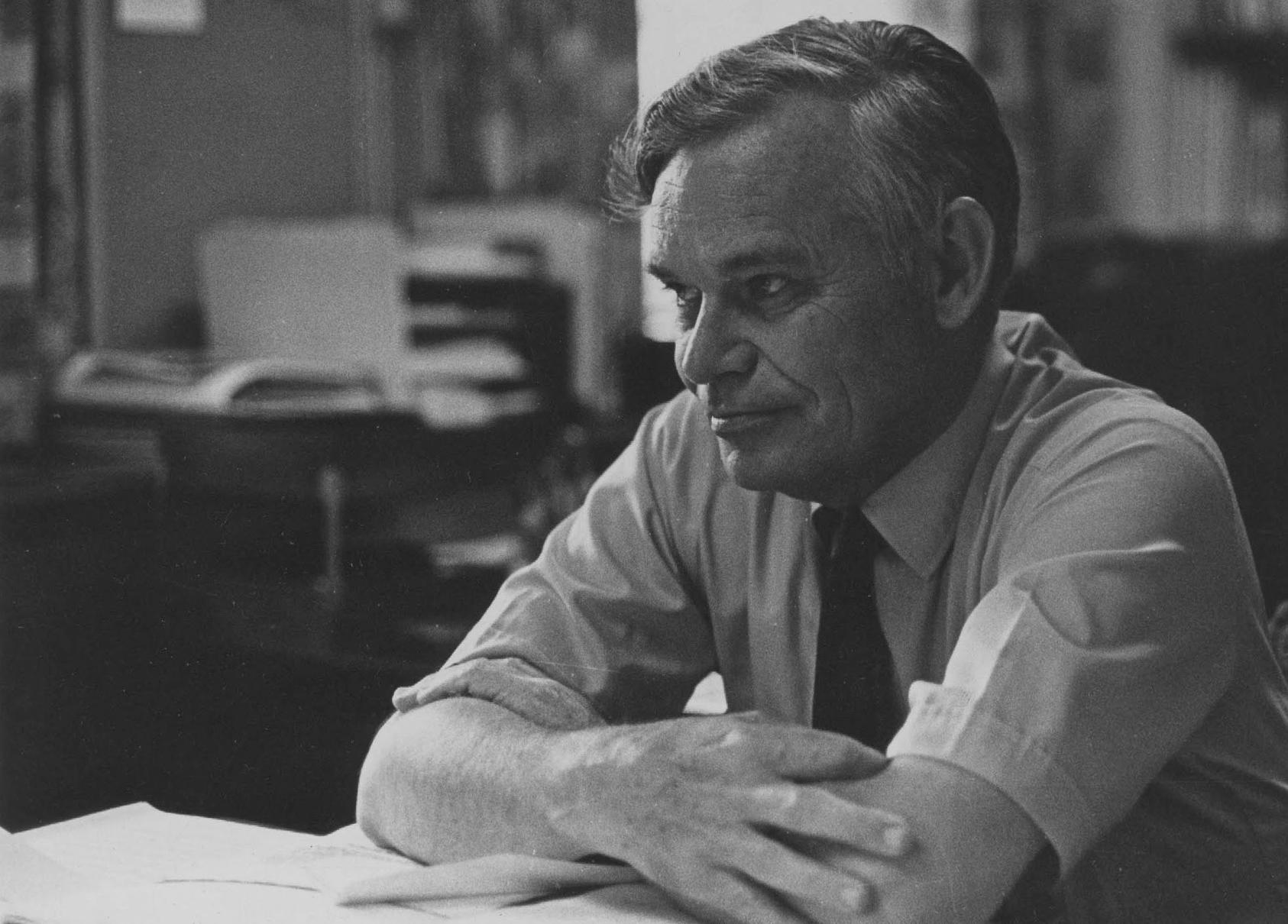
A Pacifist at War
Landrum Rymer Bolling was born in 1913 to a Baptist family in rural, southeastern Tennessee, and had taken up the Quaker faith by the time he became a young college professor. With the rise of Nazism and the start of World War II, “Bolling found himself caught in the midst of an ethical battle between his pacifist Quaker values and a feeling of humanitarian responsibility,” his official biography notes.
Bolling resolved his dilemma by resigning his professorship to cover the war for a group of Wisconsin newspapers. That mission took him to his first encounter with a ravaged Sarajevo, when he became one of few reporters to witness the city’s liberation from the Nazis. Bolling was in North Africa when Nazi Germany surrendered, and heard rumors that French troops had committed a massacre of Algerian Muslims who had protested French rule. French authorities tried to cover up the story, but Bolling became the first foreign reporter to witness and report the atrocity.
In 1948, Bolling returned to teaching at Earlham College in Indiana, and later served as Earlham’s president for 15 years. He then became president of the Lilly Endowment philanthropic fund. There, heoversaw the award of a small grant to one of several groups of Americans in the early stages of a campaign to create a national “peace academy.” This campaign led, a decade later, to Congress’ establishment of the U.S. Institute of Peace.
‘I would gladly have paid’
Bolling established a long engagement with USIP, including membership in the Institute’s International Advisory Council. The council includes scholars, former diplomats, business executives and senior conflict resolution experts who advise USIP and support its mission.
Bolling told his students and colleagues that all peacemaking begins with listening. “Cultivate the habits of patient, open listening,” he said in a 1984 interview. “I think that whatever success I've had in gaining access and being able to talk comes from the judgement people made that I could listen.”
And he counseled the cultivation of joy. “I never expected to live to be this old,” Bolling said on his 100th birthday in 2013. “I think maybe the real secret is enjoying life, enjoying people, enjoying what you’re doing. … I would gladly have paid for the privilege of doing the jobs that I’ve had.”
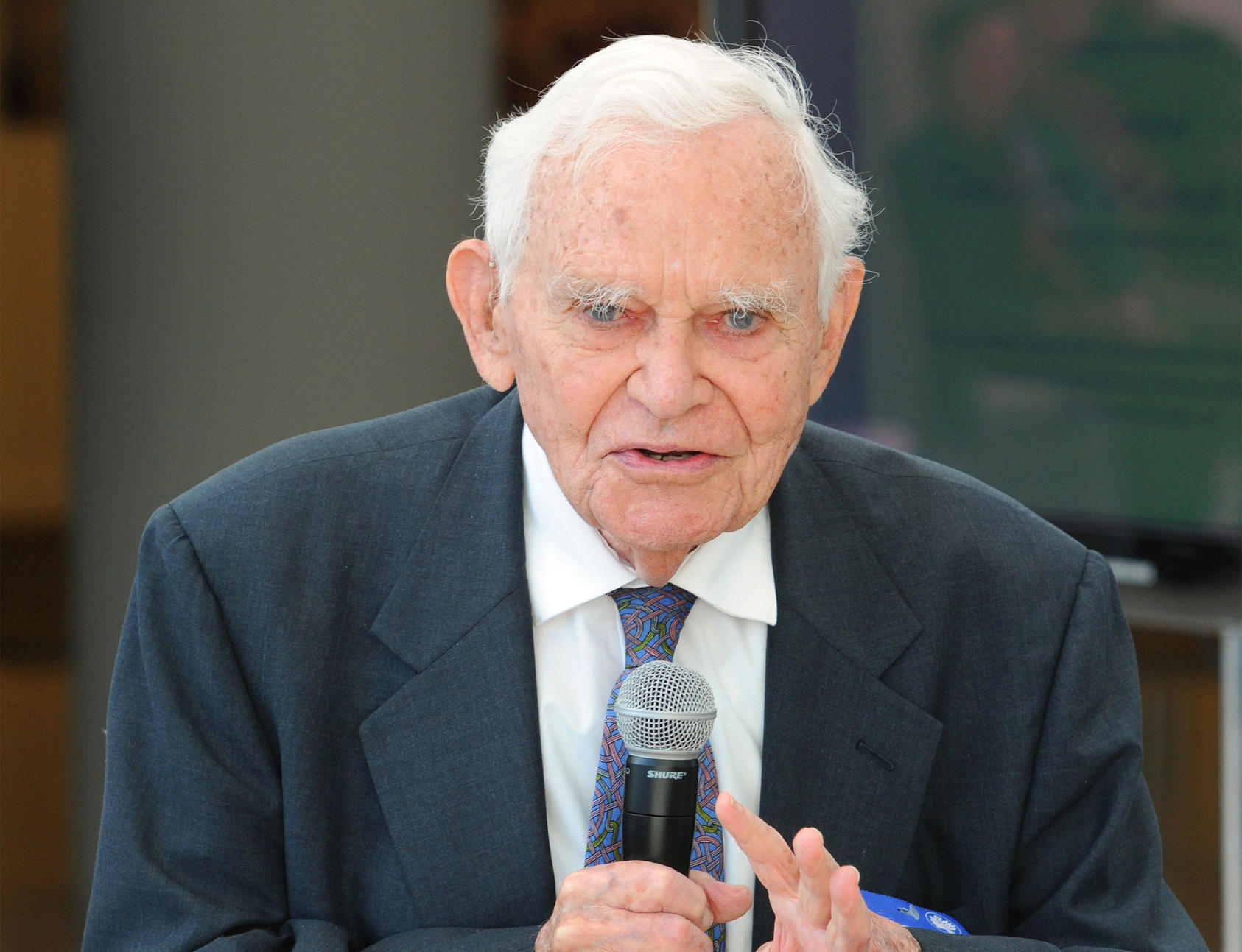
Professor and Monk
One of Bolling’s last visits to the U.S. Institute of Peace came in 2016, for a speech and discussion by His Holiness the Dalai Lama, the Tibetan spiritual leader and Nobel Peace Prize laureate. Following his public address, the Dalai Lama, who describes himself as "a simple Buddhist monk," spoke to a crowd of USIP staff members.
Bolling stood at the group’s edge supporting himself with his cane. Lindborg introduced the two men, explaining briefly to the Dalai Lama about Bolling’s career and commitment to peace. “He’s 102, and he’s been a peacebuilder all his life,” she said.
The Dalai Lama grasped Bolling’s right hand, atop his cane, and bowed deeply, pressing his forehead to the back of the professor’s hand. He insisted on helping Bolling to a waiting chair and seating him. The Dalai Lama, then age 81, smiled and told Bolling, “Compared to you, I am much younger!” Bolling smiled as the crowd laughed.
“I know your commitment,” the Dalai Lama told Bolling and the group. And speaking directly to Bolling of his career, the Dalai Lama offered two words: “Ohhhh, wonderful!”
